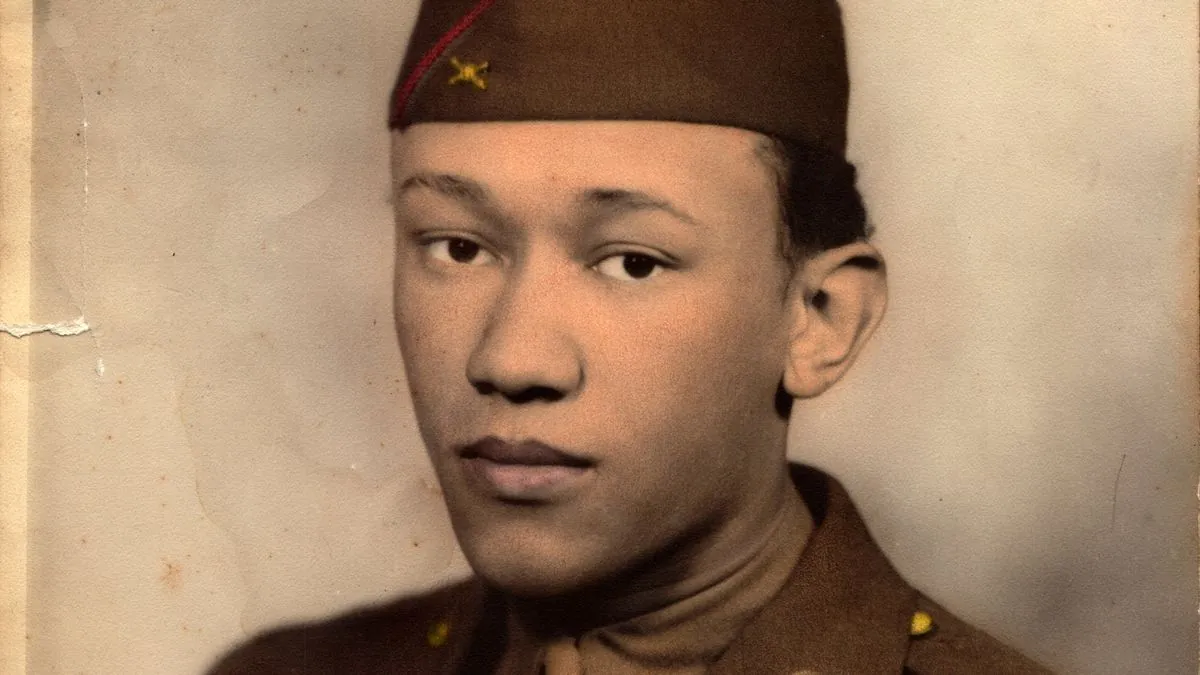On September 24, 2024, the United States took a significant step towards rectifying a long-standing injustice by posthumously awarding the Distinguished Service Cross to Waverly B. Woodson Jr., a Black medic whose extraordinary acts of heroism on D-Day had gone unrecognized for eight decades.
Woodson's story is a testament to both the valor of African American soldiers during World War II and the pervasive racial discrimination that denied them proper recognition. On June 6, 1944, as part of the largest seaborne invasion in history, the 20-year-old medic from Philadelphia landed on Omaha Beach with the 320th Barrage Balloon Battalion, the only African American unit to participate in the D-Day landings.
Despite sustaining severe injuries from mortar shrapnel, Woodson established a first aid station and worked tirelessly for over 30 hours, saving more than 200 lives. His actions included performing CPR, setting broken limbs, amputating a soldier's foot, and administering blood transfusions under extreme conditions.
The Distinguished Service Cross, the second-highest military decoration in the United States Army, comes after Woodson was awarded the Bronze Star and Combat Medical Badge in 2023. These recent honors aim to address the systemic racism that prevented African American soldiers from receiving due recognition during and after the war.
Joann Woodson, Waverly's 96-year-old widow, attended the ceremony on Capitol Hill. She reflected on her late husband's feelings about the lack of recognition: "Yes, it was heartbreaking for him. But like a lot of people, he didn't like to talk about it."
Woodson's story highlights the broader issue of racial discrimination in the U.S. military during World War II. Despite his qualifications, including fluency in German and pre-med studies at Lincoln University (the first degree-granting Historically Black College in the United States), Woodson was denied officer status due to his race.
After the war, Woodson continued to serve his country and community. He was recalled for the Korean War, rising to the rank of staff sergeant. Later, he worked at the National Institutes of Health and Walter Reed National Military Medical Center, where he finally received a command position as director of the morgue.
Rep. Marc Veasey (D-Tex.) emphasized the importance of recognizing these overlooked stories: "For the Black community, for these stories to finally come out and be told, is hugely important. If you don't bring stories like these to life ... then we'll never know how this sort of systemic racism was built into the system, and is still part of the system that affects us today."
While the recent honors are a step towards justice, Woodson's family and advocates continue to push for him to receive the Medal of Honor, the highest military decoration presented by the United States government.
The belated recognition of Waverly B. Woodson Jr. serves as a reminder of the ongoing need to address historical injustices and ensure that all service members, regardless of race, receive the honor they deserve for their sacrifices and heroism.
"Only one thing stood before Waverly Woodson and the recognition he deserved, and that was the color of his skin. The United States awarded 432 Medals of Honor during World War II, and not a single one went to an African American."
As the nation continues to grapple with issues of systemic racism, stories like Woodson's underscore the importance of acknowledging past injustices and working towards a more equitable future. The recognition of his heroism, though long overdue, is a crucial step in honoring the contributions of African American soldiers and addressing the legacy of discrimination in the U.S. military.
